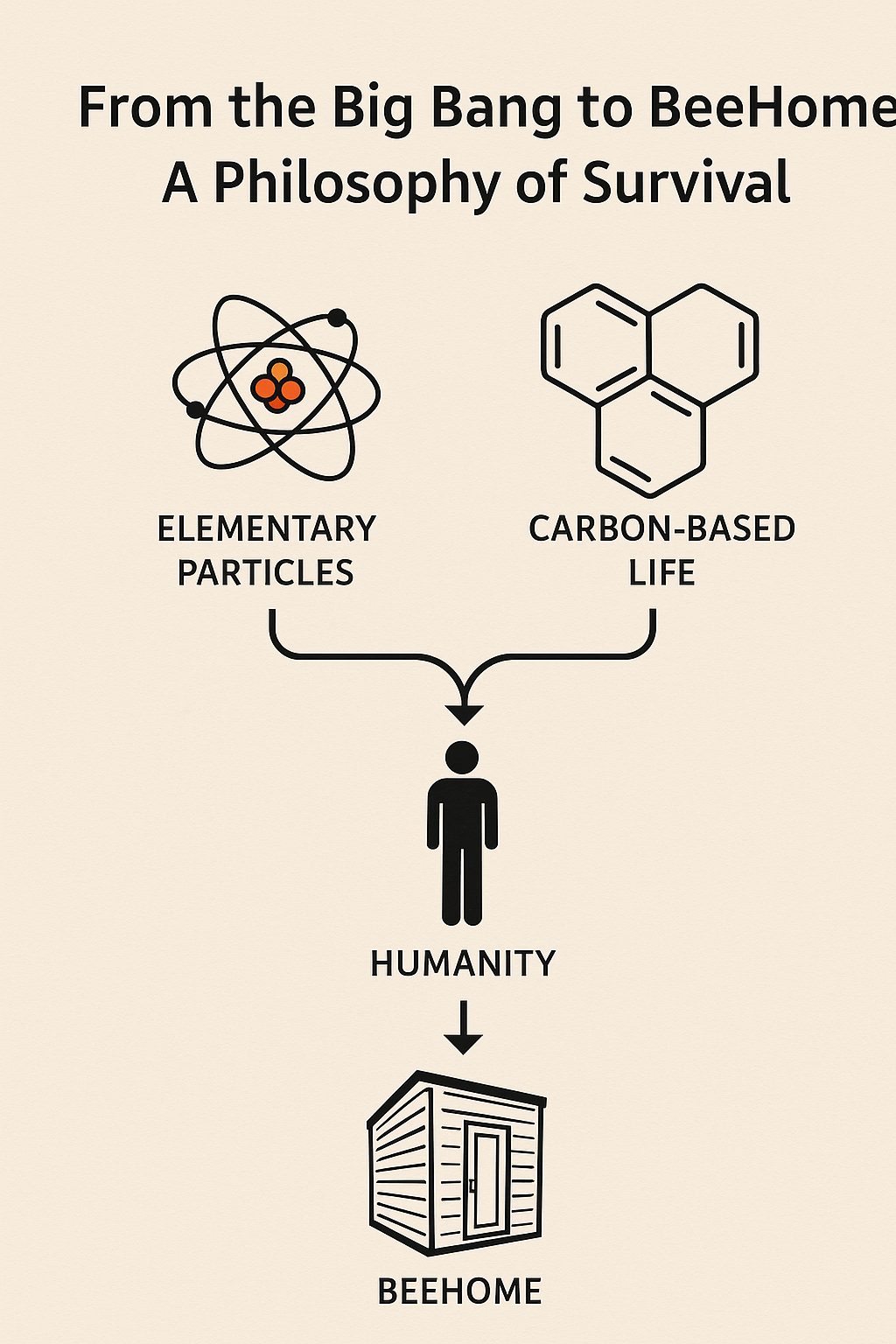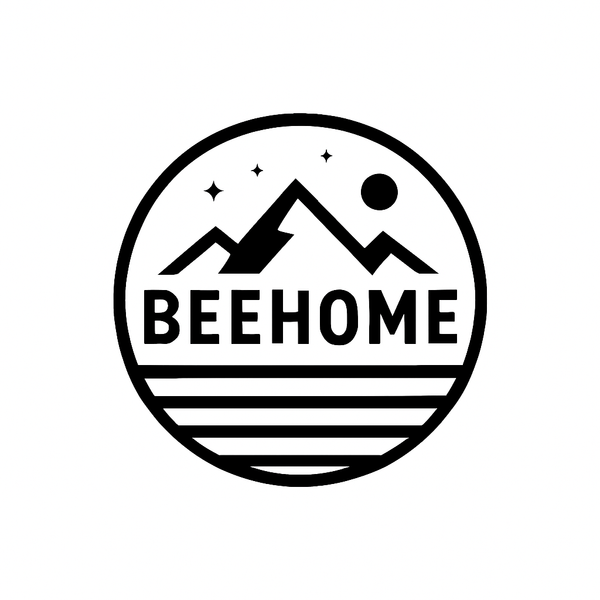
From the Big Bang to BeeHome
Share
A Philosophy of Survival
In his philosophical works, Professor Dongyue Wang traces the logic of existence from the very birth of the universe to the fragility of human society today. His conclusion is simple yet profound: all things evolve, only to survive.
1. Evolution from the First Principles of Matter
-
Elementary particles: protons and electrons form stable structures through electromagnetic interaction.
-
Atoms and molecules: from hydrogen, the first element, to increasingly complex atomic structures, evolution marches forward.
-
Instability at the higher end: the further along the periodic table we go, the more unstable the elements become—culminating in natural uranium, whose fission properties reveal the possibility of nuclear weapons.
-
Carbon-based life: among all elements, only carbon—with its four valence bonds—provides the flexibility to build complex and durable life systems.
-
The universal law: whether particles, molecules, or organisms—everything exists for one reason: survival.
2. Humanity: The Most Unstable Species
At the top of this evolutionary chain stands humanity—ironically, the least stable of all beings.
-
Our physiology is fragile and energy-intensive.
-
Our survival depends on precise conditions of temperature, nutrition, and environment.
-
Precisely because we are the most unstable, we developed association and socialization:
-
An individual cannot survive alone.
-
Only through cooperation, communities, and institutions can humans withstand the uncertainties of the environment.
-
Humans survive not as isolated individuals but as a social species.
3. The Human Body: A Machine for Survival
The human body itself can be understood as a survival machine:
-
Too cold, and life ceases.
-
Too hot, and life collapses.
-
Without energy, metabolism fails.
Every act—eating, breathing, building shelter, creating warmth—is nothing more than the pursuit of maintaining existence.
4. BeeHome: Survival Philosophy in Practice
This survival logic is what inspires BeeHome:
-
Energy: in summer, solar panels capture sunlight to sustain a self-sufficient climate.
-
Heat: in winter, biomass—stored solar energy through photosynthesis—is released via rocket stoves to maintain vital warmth.
-
Structure: built at minimal cost and with simple methods, BeeHome ensures shelter as the foundation of survival.
-
Socialization: BeeHome is not just a cabin; it is a platform, enabling individuals to build, to trade, and to connect—creating a new social survival network.
5. Conclusion
From subatomic particles to the human body, from carbon chemistry to social systems, the thread is unbroken: all things exist only to survive.
BeeHome is not luxury; it is a practical philosophy. It embodies the recognition that humans, as the most unstable of species, require ingenuity, cooperation, and resilience to endure.
🌍 BeeHome is more than a shelter—it is survival philosophy made real.
